Summer Program in Italy
Sustainability, Food, and Local Cultures
Are you ready for a life-changing summer in Italy? Below is information on:
- Program dates and deadlines
- Destinations
- Program overview
- Prerequisites
- Accommodations
- Excursions
- Fellowship aid
- Program costs and application
- Contact
Program Dates and Deadlines
The program dates for the 2026 summer program are May 18 (arrival in Italy on May 17)-June 10.
All applicants will be considered for the Lisio and/or any related donor awards with priority for those with demonstrated financial need. Merit only applicants will be considered for scholarships on a fund availability basis. Scholarship determinations will be made in February 2026. Late applications may be considered on a case-by-case basis.
Destinations
Our study abroad program invites students to experience Italy not as a checklist of monuments but as a living mosaic of cultures, landscapes, and communities. Rooted in immersive learning and grounded in sustainability, the program travels from northern to southern Italy, with each region offering its own traditions, environments, and perspectives on Italian life.
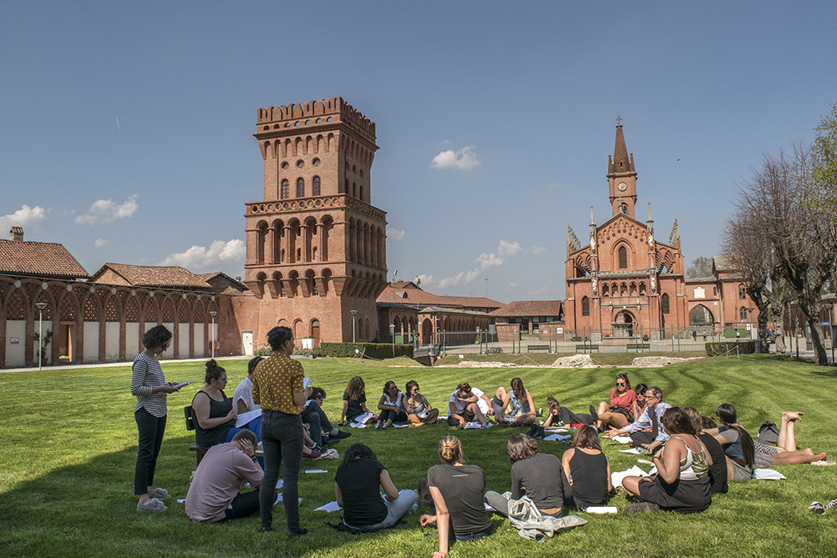
Pollenzo (Piedmont): Nestled amid vineyards and the Alps, Pollenzo is home to the University of Gastronomic Sciences, one of the world’s leading institutions devoted to the study of food. Here, students begin their exploration of Italian cultures through the lens of gastronomy, sustainability, and agricultural landscapes. Hands-on cooking labs, visits to farms and food producers, and classes with scholars and practitioners reveal how food systems connect to history, ecology, and identity. In this quiet corner of northern Italy—just a train ride from Turin—students experience a community deeply tied to land, tradition, and innovation.
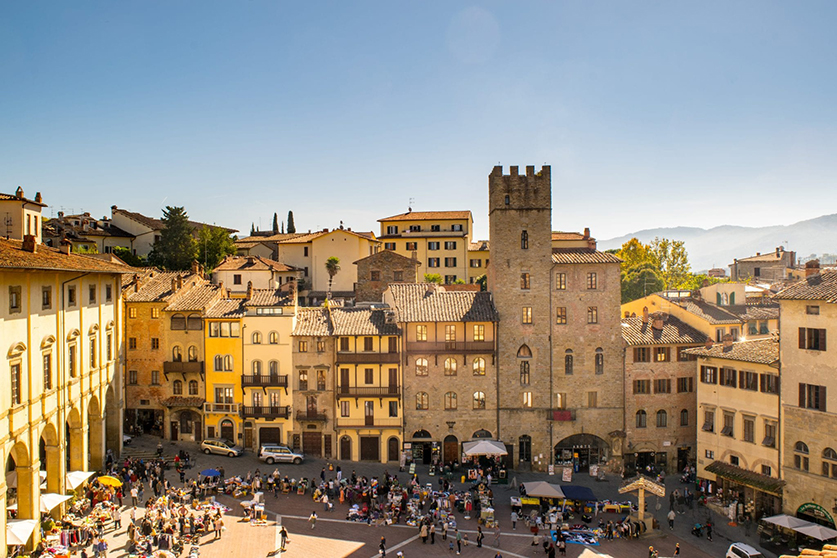
Arezzo (Tuscany): The city of Arezzo, founded by the Etruscans three thousand years ago, offers a rich blend of art, craftsmanship, and rural life. Its ancient roots and conspicuous Roman, medieval, and Renaissance heritage create a distinctive backdrop for interdisciplinary study, while its human-scale streets and active local networks provide meaningful opportunities for cultural engagement. Through workshops, seminars, and field experiences, students encounter a Tuscany that extends far beyond familiar tourist routes.
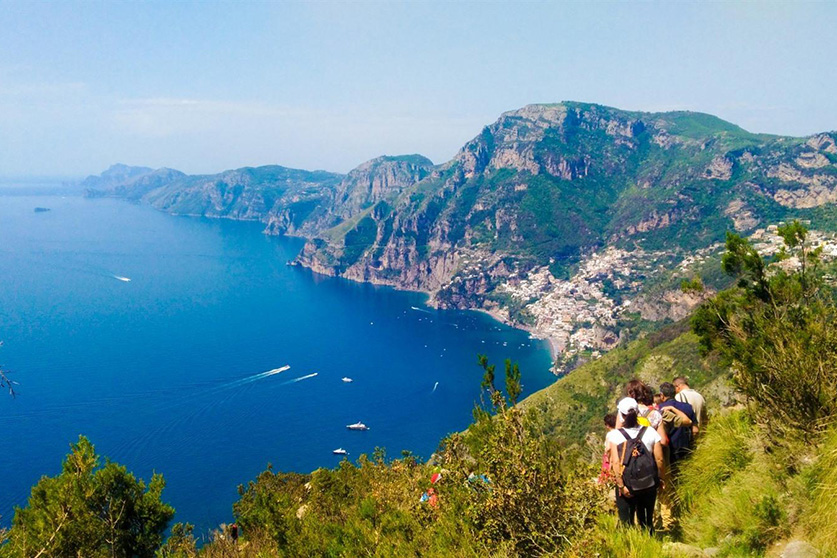
Naples and the Amalfi Coast (Campania): From coastal ecosystems to urban food traditions, Naples and its surrounding region serve as a dynamic laboratory for exploring environmental resilience and cultural diversity. Students engage directly with Mediterranean conservation efforts through visits to a museum and a research center focused on marine biodiversity. Guided visits to Paestum and Pompeii reveal the region’s deep historical layers and the interplay between environment, heritage, and human settlement. A hike along the Sentiero degli Dei on the Amalfi Coast offers a striking perspective on Italy’s natural and cultural landscape.
Program Overview
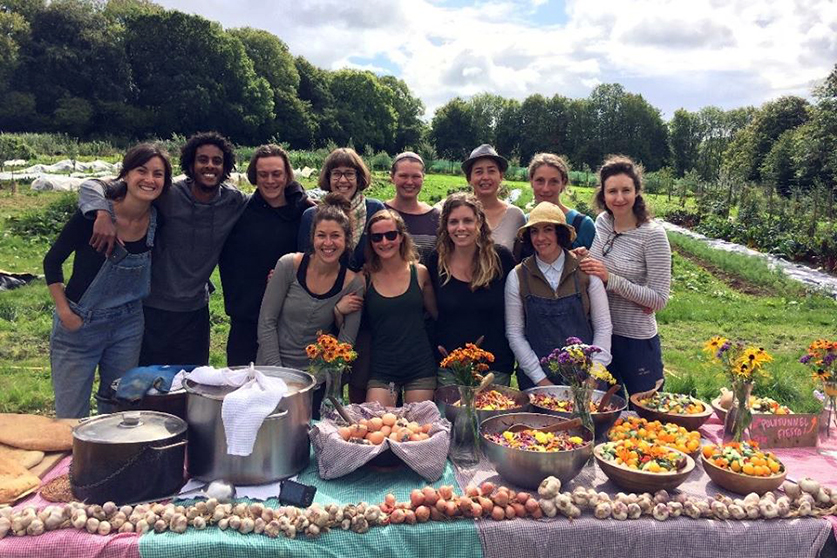
Weekday mornings are devoted to Italian language classes tailored to each student’s level, while interdisciplinary study explores Italian food, culture, sustainability, and the environment. The program blends academic coursework with experiential learning, including lectures, seminars, cooking labs, workshops, field visits, and excursions in nature. Students engage directly with local communities, producers, research centers, and museums. They learn from scholars, farmers, artisans, and innovators who work toward sustainable futures.
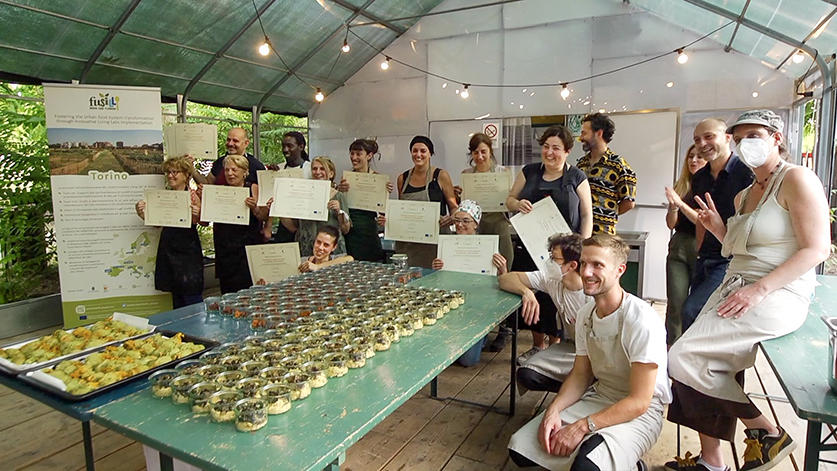
Excursions across three regions—including journeys on the “Italian water ways” from Alpine glaciers to Tuscan rivers and the Mediterranean Sea—allow students to experience Italy’s diverse landscapes, cultures, and traditions firsthand. By focusing on smaller, less touristy destinations, the program fosters authentic cultural immersion and meaningful engagement while emphasizing sustainable and responsible travel.
This course builds language proficiency, interdisciplinary insight, and intercultural competence.
Prerequisites
No previous knowledge of Italian is required. All participants take language courses suited to their level, using language learning as a bridge to deeper cultural understanding and respectful engagement with the hosting communities.
Accommodations
Students are accommodated in carefully selected hotels and residences in each destination, allowing for close connection with faculty and easy access to classes, workshops, and excursions.
Excursions
Field experiences include cooking labs, workshops, and visits to farms, museums, and research centers. Excursions provide hands-on engagement with Italy’s landscapes, history, and communities.
In Piedmont, students explore Alpine ecosystems, the Slow Food headquarters in Bra, artisan workshops connected to the Slow Food movement, and the University of Gastronomic Sciences campus with its educational gardens. In Tuscany, they visit Poppi, La Verna, the nearby rivers and forests, and Arezzo’s historic center with its artisan traditions. In Campania, students visit the Darwin-Dohrn Museum and Turtle Point marine conservation center in Portici, hike the Amalfi Coast along the Sentiero degli Dei, explore Paestum’s Greek temples, and tour Pompeii’s archaeological site.
Scheduled free time and optional trips allow for further exploration of local markets, villages, and nearby cities, fostering authentic cultural immersion. Together, these experiences form a course that develops Italian language proficiency, interdisciplinary understanding, and intercultural competence.
Fellowship Aid
All applicants will be considered for the Lisio and/or any related donor awards with priority for those with demonstrated financial need. Merit only applicants will be considered for scholarships on a fund availability basis. Scholarship determinations will be made in February 2026. Late applications may be considered on a case-by-case basis.
Program Cost and Application
The program fee ($5,100) includes:
- Tuition (four credits)
- Instruction
- Accommodation
- Meals at the University of Gastronomic Sciences’ academic tables
- Excursions
- Local transportation to the program’s destinations
- Museum fees
- Select additional meals
- Gala farewell dinner
Not Included: Transatlantic airfare, personal expenses, and some meals are not covered by the program fee.
Tuition and program costs will be added to your official tuition bill. For information on payments and deadlines, please refer to your billing statement from the Office of the Bursar.
Interested in studying in Italy? The application deadline is February 2, 2026. Late applications may be considered on a case-by-case basis.
Please note that all information about this program may be subject to minor changes. Check with the program director for the most recent information.
Contact
For more information, contact:
Lucia Casiraghi
Assistant Professor of Instruction in Italian
411 Lattimore Hall
lcasirag@ur.rochester.edu
